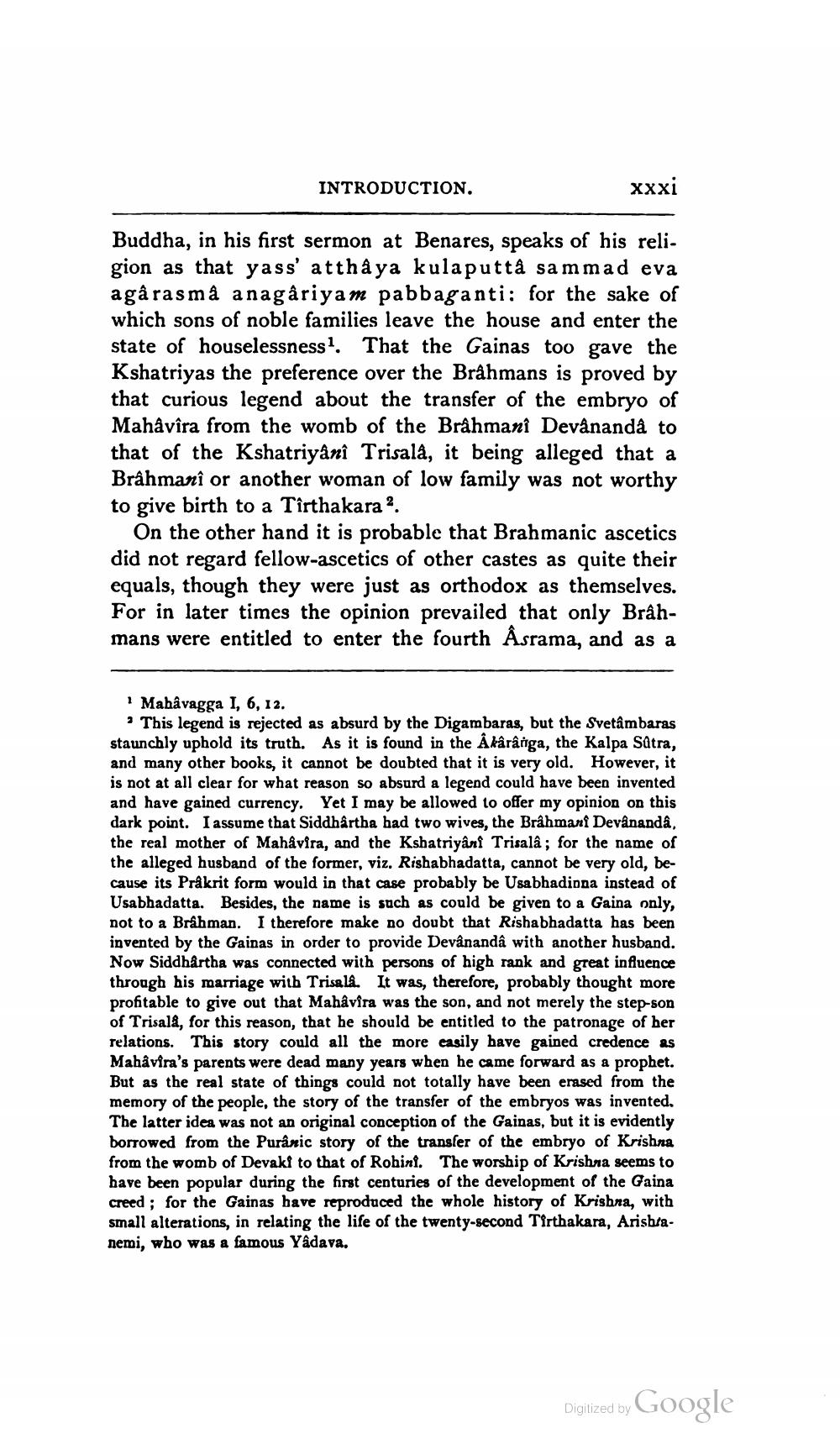________________
INTRODUCTION.
xxxi
Buddha, in his first sermon at Benares, speaks of his religion as that yass' attha ya kula puttà sammad eva aga rasmà anagariyam pabbaganti: for the sake of which sons of noble families leave the house and enter the state of houselessness? That the Gainas too gave the Kshatriyas the preference over the Brâhmans is proved by that curious legend about the transfer of the embryo of Mahâvîra from the womb of the Brahmani Devanandå to that of the Kshatriyânî Trisalâ, it being alleged that a Brâhmanî or another woman of low family was not worthy to give birth to a Tîrthakara .
On the other hand it is probable that Brahmanic ascetics did not regard fellow-ascetics of other castes as quite their equals, though they were just as orthodox as themselves. For in later times the opinion prevailed that only Brâhmans were entitled to enter the fourth Asrama, and as a
Mahâvagga I, 6, 12. * This legend is rejected as absurd by the Digambaras, but the Svetâmbaras staunchly uphold its truth. As it is found in the Akârâiga, the Kalpa Satra, and many other books, it cannot be doubted that it is very old. However, it is not at all clear for what reason so absurd a legend could have been invented and have gained currency. Yet I may be allowed to offer my opinion on this dark point. I assume that Siddhartha had two wives, the Brahmani Devananda, the real mother of Mahåvira, and the Kshatriyâni Trisalâ ; for the name of the alleged husband of the former, viz, Rishabhadatta, cannot be very old, because its Prakrit form would in that case probably be Usabhadidna instead of Usabhadatta. Besides, the name is such as could be given to a Gaina only, not to a Brahman. I therefore make no doubt that Rishabhadatta has been invented by the Gainas in order to provide Devananda with another husband. Now Siddhartha was connected with persons of high rank and great influence through his marriage with Trisala. It was, therefore, probably thought more profitable to give out that Mahavira was the son, and not merely the step-son of Trisald, for this reason, that he should be entitled to the patronage of her relations. This story could all the more easily have gained credence as Mahavira's parents were dead many years when he came forward as a prophet. But as the real state of things could not totally have been erased from the memory of the people, the story of the transfer of the embryos was invented. The latter idea was not an original conception of the Gainas, but it is evidently borrowed from the Puranic story of the transfer of the embryo of Krishna from the womb of Devaki to that of Rohini. The worship of Krishna seems to have been popular during the first centuries of the development of the Gaina creed; for the Gainas have reproduced the whole history of Krishna, with small alterations, in relating the life of the twenty-second Tirthakara, Arishtanemi, who was a famous Yadava.
Digitized by Google




